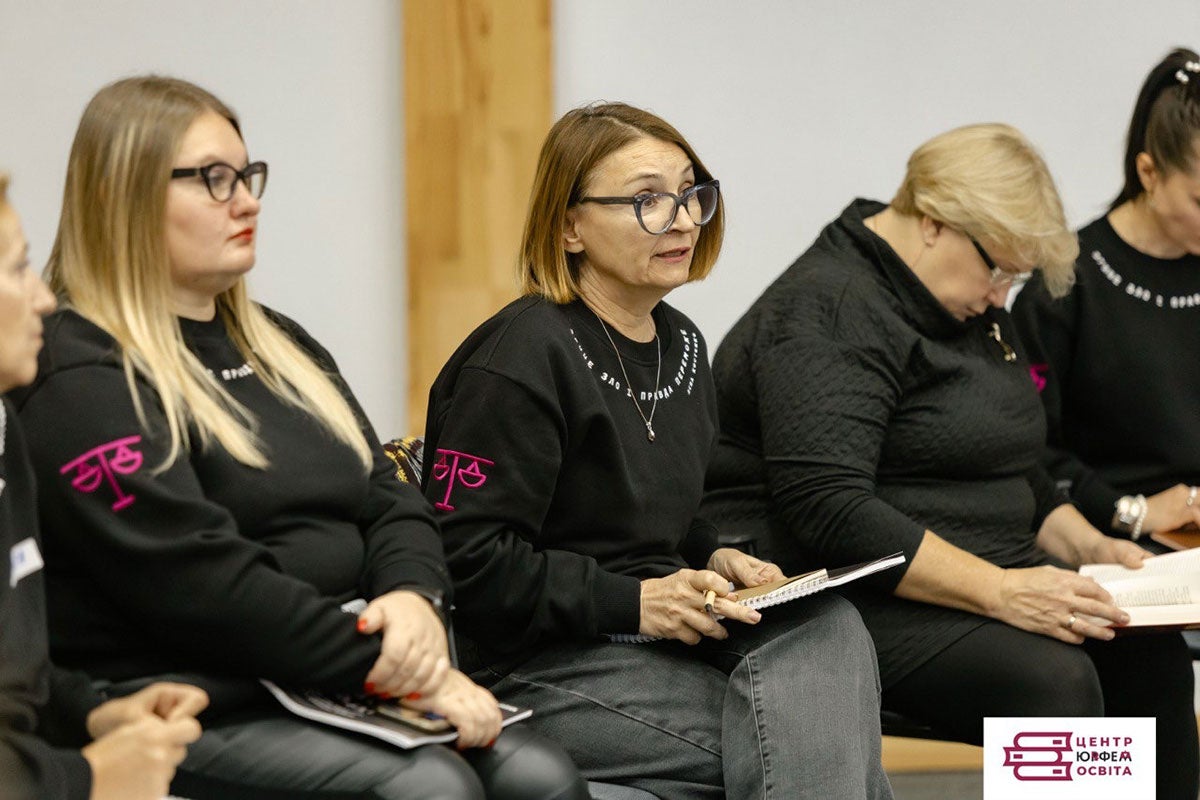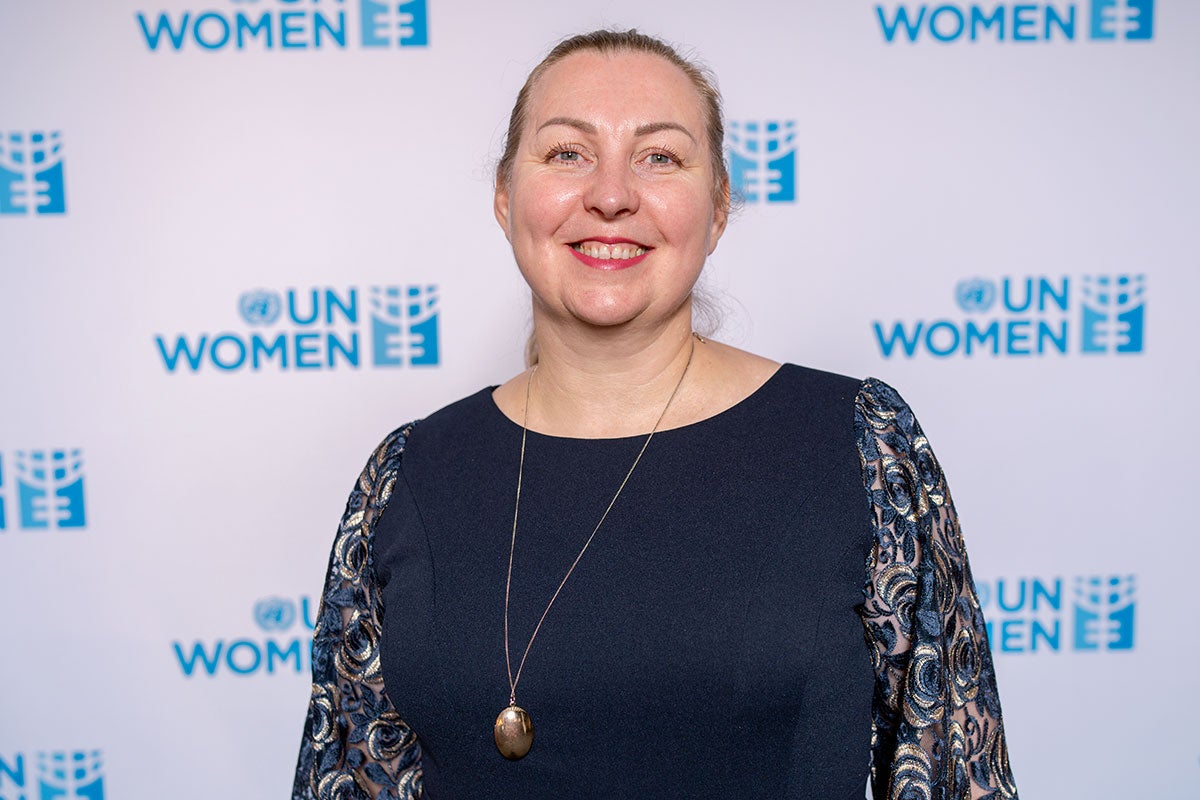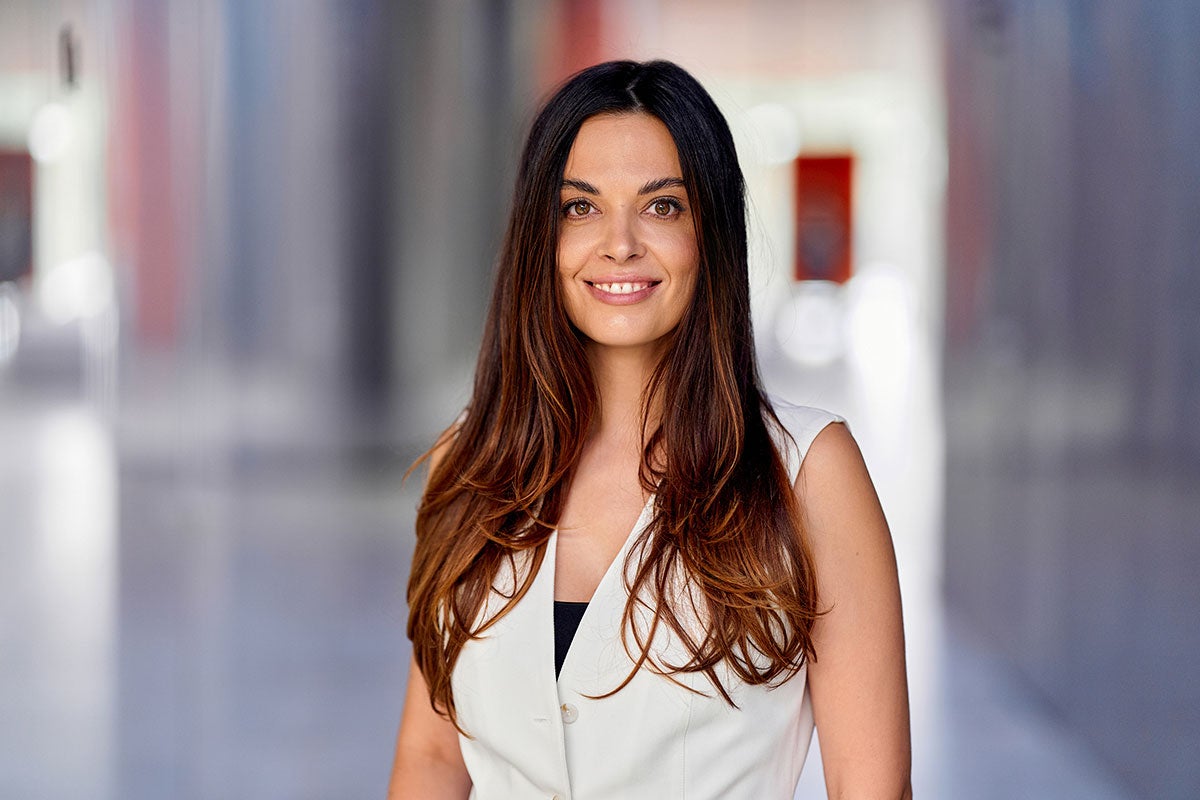Women lead humanitarian, economic, and legal efforts amid years of Russia’s war on Ukraine
After three years of full-scale war in Ukraine, women are bearing the brunt of Russia’s war. But while they have endured violence and displacement, women throughout the country continue to advocate for resilience and equality.

Women at the forefront of humanitarian aid in Ukraine
In Kharkiv, only a few kilometers from the frontline, Halyna Kharlamova leads Volunteer-68, an organization providing humanitarian aid to people with disabilities and residents in war zones.
“After nearly three years of the full-scale war, you feel that you just have to take action,” she said. “We understand that without our support, the people we serve would be in a very difficult situation.”
Founded in 2022, her team has evacuated over 10,000 people from dangerous areas and delivered over 100,000 aid packages. Her organization focuses on the most vulnerable populations, including women with disabilities and the elderly. With UN Women’s support, Volunteer-68 has been pivotal in delivering food, medical supplies, and warm clothing to those in need, particularly during the harsh winter months.
“We are constantly looking for opportunities to expand our activities in the field because, unfortunately, neither the Ukrainian state nor the civil society can cope with the mounting needs,” Kharlamova said. “We know it’s hard work, but we just keep going by reminding ourselves that it’s even harder for those in the trenches, so we must continue.”

Empowering women in Ukraine: Economic recovery and leadership
Lyubov Pravdina’s organization, New Ukrainian Narratives, works to build a resilient Ukrainian civil society by supporting women’s socio-economic empowerment and leadership.
The organization’s flagship project, “ZMIST” (“Content”), focuses on helping internally displaced women develop skills in business management, digital literacy, and leadership. With support from UN Women, the organization has assisted 3,500 internally displaced women.
“We managed to implement a large-scale project helping thousands of women from seven regions of Ukraine integrate into new communities,” Pravdina said.
“When we started, many women felt lost and without direction,” she added. “But by the end of the programme, 65 per cent wanted to start their own businesses, and 20 per cent expressed a desire to take on leadership roles in their communities.”
“In a way, this full-scale invasion has also been an impetus for a shift in the social role of Ukrainian women,” Pravdina said. “It’s an opportunity to advance gender equality and change perceptions of women’s leadership.”

Legal aid for women affected by war and conflict in Ukraine
“My priority will always be helping those who remain in captivity and those who remain in the occupied territory,” said Lyudmyla Huseynova.
Huseynova said that Russian authorities arrested her in 2019 while she was delivering humanitarian aid to orphans near what was then the frontline of the war.
Detained in the notorious Izolyatsia prison and later transferred to a Donetsk detention center, which has been under Russian occupation since 2014, she was subjected to brutal treatment that led to chronic health issues.
Huseynova was released in a prisoner exchange three years later, in October 2022, and subsequently dedicated her life to supporting survivors of conflict-related violence through legal aid, psychological counseling, and reintegration programmes.
Working with SEMA Ukraine, a local organization supported by UN Women, Lyudmyla also advocates for systemic reforms to address conflict-related sexual violence, aiming to ensure justice is accessible to all.
“I’m doing everything I can to help these women,” Huseynova said, speaking of the women who remain in Russian detention. “I can’t forget their tears. These women have names. These women have faces. These women are undergoing unbelievable suffering right now.”









